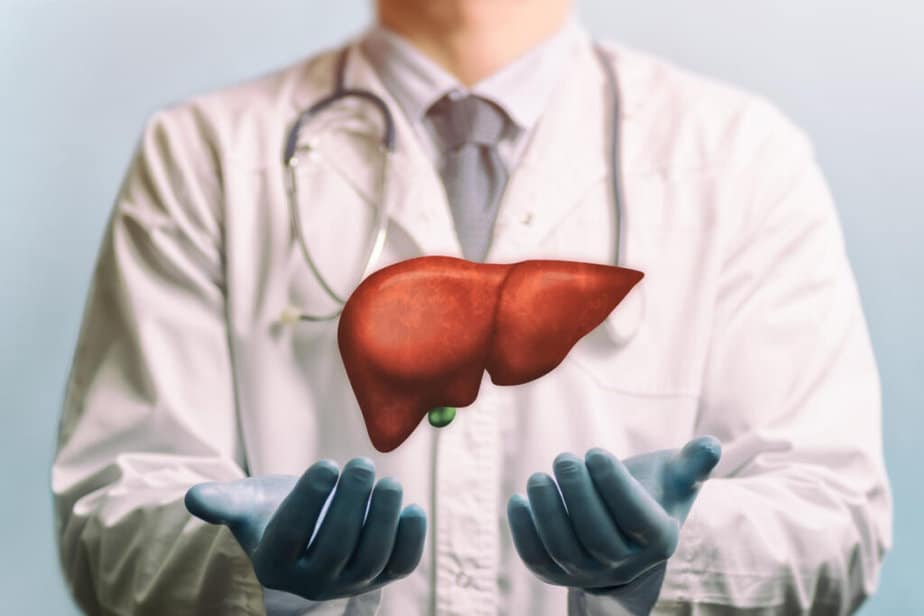A liver transplant provides the only chance of survival for someone whose liver has been destroyed by injury or illness.
Surgery provides the organ recipient with a healthy liver so that the body can return to relatively normal functioning.
Transplant may be recommended in the following instances:
- Birth defects of the liver or bile ducts (such as biliary atresia, a condition in which the bile ducts inside or outside the liver do not have normal openings)
- Cirrhosis resulting from liver disease from alcohol, chronic viral hepatitis, autoimmune liver disorders, iron overload disorders, other metabolic disorders like Wilson’s disease or NAFLD
- Drug induced liver injury resulting in acute liver failure (including Tylenol)
- Thrombosis (hepatic vein clot)
The liver stores vitamins and body fuels, manufactures plasma proteins, and regulates blood volume. As our largest organ, the liver manages products from normal red blood cell breakdown, and orchestrates their conversion into bile – a thick, digestive fluid that helps break down fats into fatty acids.
The liver also detoxifies poisonous bodily waste into less toxic forms that can be safely excreted through urine or stool.
Because the liver is responsible for such crucial functions, without it life could not be sustained.

How is a Liver Transplant Performed?
A healthy liver is sometimes obtained from a recently deceased donor who has experienced no liver injury during their lifetime. It is vital that the donated liver, or liver segment, be accepted by the patient’s body.
Liver tissue from a close relative – which is less likely to be rejected by the recipient’s immune system – is becoming another accepted option (called a living donor liver transplant).
Liver transplantation surgery may take up to twelve hours. The diseased liver is removed through an incision in the upper abdomen. The donor liver, or liver tissue, is then implanted into the recipient and attached to the recipient’s bile ducts and blood vessels.
Lifelong immunosuppressive drugs are required after a transplant to help prevent rejection of the donor organ, which can result in recurrent liver failure. In the immediate post transplant period, multiple antibiotics, antivirals and antifungal medications are given to help prevent infection.
What are the Risks of a Liver Transplant?
Because of the nature of a liver transplant operation, there are major risks for recipients and living donors.
During any operation requiring the use of an anesthetic, there is the possibility a patient may react to medication and/or experience problems breathing. Bleeding is also a surgery risk.
A blood clot in one of the main arteries to the liver is a postoperative complication that can sometimes require a repeat transplant.
Infection in the immediate post transplant period is a serious risk, likely related to high doses of immunosuppressive drugs that are needed to help prevent rejection of the new liver.
Liver Transplant Recovery and Long-term Prognosis
The average recovery period for a liver transplantation is twelve weeks. After consultation with their health care providers, patients are usually encouraged to get back to their normal daily routines as soon as possible.
While transplant rejection and the life-long need for immunosuppressive drugs are serious considerations, liver transplants can save the lives of people who might otherwise die.
Nationally, the overall patient survival rate one year post-surgery is over 86%, and almost 78% after three years.
Check out these other articles to learn more about the liver and different liver conditions:

